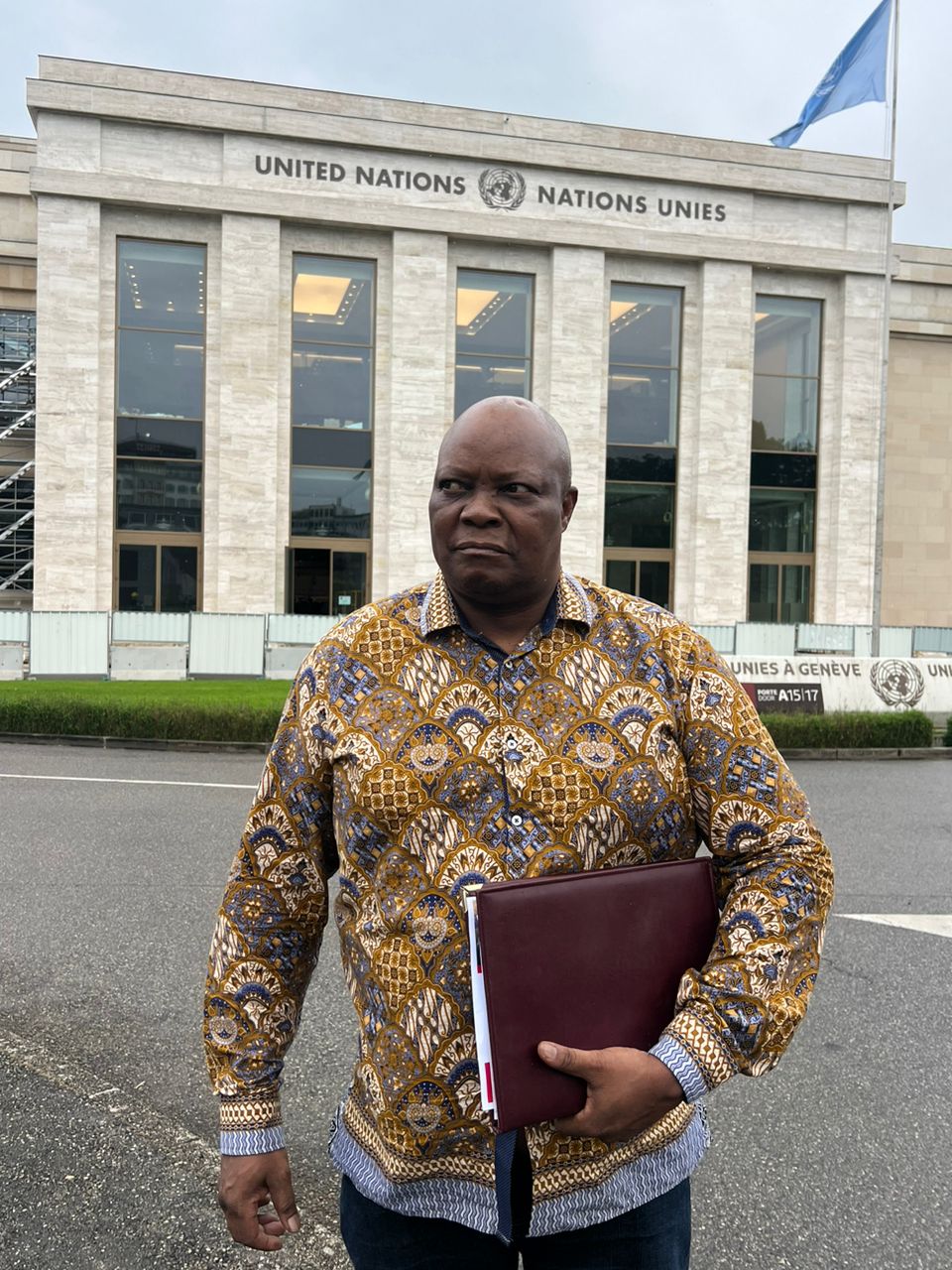Sikhala’s defiant stand at UN: Exposing Zimbabwe’s harsh reality of oppression

leader of the NDWG Job Sikhala arriving at a UN event in Geneva
By Mswazie Wamanava in Geneva
Geneva, Switzerland – In a poignant address to the UN’s 16th Geneva Summit for Human Rights and Democracy, Job Sikhala, a prominent Zimbabwean opposition leader and lawyer, shared a harrowing account of his 595-day imprisonment under President Emmerson Mnangagwa’s regime.
Sikhala did not only shed light on his personal ordeal but also underscored the systemic oppression faced by dissenters in Zimbabwe.
“I am Job Sikhala, the surviving political prisoner from Zimbabwe,” he began, his voice steady despite the weight of his words. “On June 14, 2022, I was arrested for representing Moreblessing Ali, a single mother & opposition political activist who was brutally murdered.”
Sikhala’s arrest was a direct consequence of his legal representation of Ali, whose body was mutilated in a politically motivated crime. His subsequent pre-trial detention in Chikurubi Maximum Security Prison became a symbol of the political persecution rampant in the country. Despite facing 68 arrests over his nearly three-decade-long political career, Sikhala’s resilience remained unshaken.
“The regime made me face five trials,” Sikhala revealed. “They blackmailed my initial legal team, led by Beatrice Mtetwa, to stop them from representing me. They threatened my lawyer, Harrison Nkomo, by pointing a gun to his forehead.”
The opposition leader’s incarceration was marked by solitary confinement, denial of basic rights, and severe medical neglect. Sikhala’s narrative revealed a judicial system weaponized against him, with coerced legal representation and convictions based on non-existent laws. The regime’s efforts to silence him extended beyond the prison walls, decimating his legal practice and targeting his family and associates.
“My family also became a victim of persecution,” Sikhala continued. “My beloved wife, Ellen, was unjustly arrested for a spurious road traffic offence. They convicted her and confiscated her driver’s license to prevent her from bringing me food in prison.”
Sikhala’s release, following the collapse of the charges against him, was a bittersweet victory. The disruption of Moreblessing Ali’s funeral by a state-sponsored mob and the continued harassment of his wife and supporters highlighted the regime’s relentless vendetta. His speech at the Geneva Summit was not just a personal testament but a rallying cry for the countless Zimbabweans suffering under the yoke of tyranny.
“The ‘Patriotic Act’ and the proposed Private Voluntary Organizations Bill are legislative tools designed to stifle dissent and democracy,” Sikhala warned. “The regime has systematically destroyed the right to education and the right to demonstrate and petition.”
As he concluded his address, detailing the systematic destruction of democratic space in Zimbabwe, the room erupted into applause. The audience rose to their feet, delivering a standing ovation that reverberated through the hall. It was a powerful moment of solidarity, acknowledging Sikhala’s courage and the resilience of those who stand against oppression.
In a significant development, Job Sikhala has taken on the role of Chairman of the National Democratic Working Group (N.D.W.G). He is actively engaging with Zimbabweans to chart a course towards a lasting political solution to the myriad challenges plaguing the Southern African nation. His leadership in this consultative process is a testament to his unwavering commitment to democracy and human rights.
Sikhala’s address to the international community was a powerful reminder of the enduring struggle for human rights and democracy in Zimbabwe. His story, emblematic of the broader fight against authoritarianism, resonates with a nation yearning for change and a world that must not turn a blind eye to injustice.
As Sikhala recuperates in an undisclosed country, his unwavering commitment to justice and democracy continues to inspire hope. The international community’s response to his call for solidarity remains to be seen, but one thing is clear: Job Sikhala’s voice will not be silenced.






